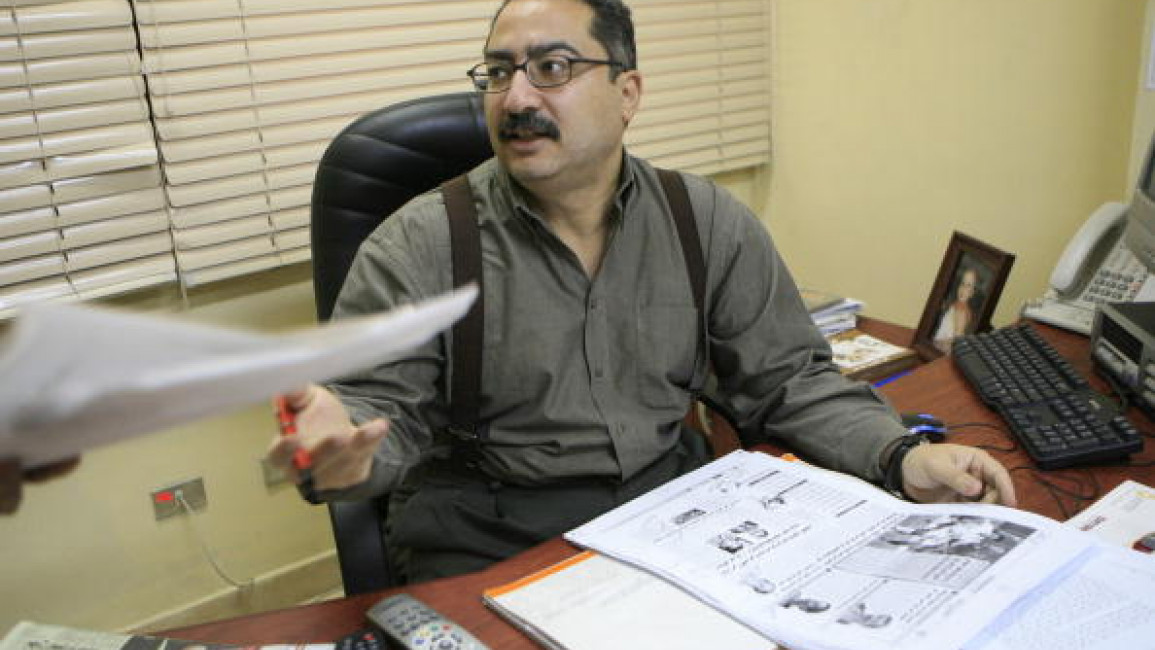Egyptian lawyer accuses Ramadan TV series on divorce and women’s rights of blasphemy
An Egyptian lawyer, Samir Sabry, has reportedly filed a complaint over the weekend to Egypt's public prosecutor and the state security prosecutor against a Ramadan TV series, accusing the scriptwriter of blasphemy, local news outlets reported on Monday.
In his complaint, Sabry, known for commonly filing lawsuits against celebrities over the years, claims that the TV series, "Faten Amal Harby" defames Al-Azhar's clergy by depicting them negatively, the reports added.
Al-Azhar is the highest Sunni Muslim institution in the region.
Written by journalist and writer Ibrahim Eissa, known for being a strong advocate for women's rights, the drama series is currently rated among the top shows in Egypt and the region this year.
The series follows the story of a woman and her struggles with divorce, facing obstacles at the family court or with her abusive ex-husband, and critiques Egypt's personal status law as being unjust towards women.
In the series, the main protagonist decides to directly challenge the personal status law, attempting to file a lawsuit before the supreme constitutional court to prove that the legislation should be either amended or struck down entirely.
Moreover, the series also includes two different types of Islamic scholars, one that appears more enlightened, tolerant and moderate, and befriends the protagonist and supports her efforts for change, while the other type presented in the show are Muslim clerics who rigidly and absolutely oppose the protagonist's battle to change the personal status law.
For his part, Sabry's complaint claims that the TV series criticised essential Islamic values, and thus has a negative impact on society and stability.
According to Sabry, the fact that the freedom of belief is guaranteed by the constitution does not allow for contending religious principles or deliberately profanity religion and has called for prosecuting Eissa under article 98 of the Egyptian penal code.
First enacted in 1981 and amended several times over the years, article 98 (f) of the penal code, otherwise known as "the blasphemy law", prohibits the advocacy of unorthodox religious thought, sedition, and/or jeopardising national unity and security.
Several writers, intellectuals and commentators have faced trials under the infamous law over the years.
The New Arab attempted to contact Eissa for comments, but he was unavailable.
Meanwhile, Al-Azhar in a statement posted on Facebook released earlier in the day criticised any work of art that distorts the image of the Muslim clergy, even though the institution stressed that it "respects creativity."
Even though the statement did not directly mention "Faten Amal Harby," Azhar's Global Fatwa Centre criticised "the portrayal of Islamic legacy as an opponent to women."


![President Pezeshkian has denounced Israel's attacks on Lebanon [Getty]](/sites/default/files/styles/image_684x385/public/2173482924.jpeg?h=a5f2f23a&itok=q3evVtko)



 Follow the Middle East's top stories in English at The New Arab on Google News
Follow the Middle East's top stories in English at The New Arab on Google News


